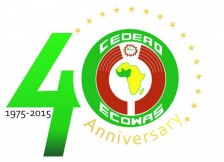ICT

Communication is the live wire of development. The community is mindful of the role of adequate communication in the realisation of the integration programmes of ECOWAS.
The ECOWAS ICT policy is geared towards the promotion of the development of economic and technological infrastructure.
ECOWAS as a regional body believes that regional economic growth should begin with prudent macro-economic policies. It is for this reason that investments are being made in the social sector while formulating economic policies within the framework of a regional development programme. As it aims to improve economic integration. The ECOWAS ICT policy is in aid of the development of investment and promotion services within the community.
To this end, it is meant to bring about a harmonised and standardised ICT infrastructure across the region. In addition to this is the creation of a uniform operations procedure and frameworks for all ECOWAS Institutions and the Commission.
This will in turn make for an efficient and effective communication network between ECOWAS Institutions, facilitate shared resources while improving service desk functions including the visibility of ECOWAS through its website, among others.
The telecommunications priority is leading to the development of a reliable and modern regional telecoms broadband infrastructure including the INTELCOM II programme, alternative broadband infrastructures and submarine cables as well as the establishment of single liberalised telecoms market. By year end 2013, 11 member states bordering the coastal areas were connected to submarine cables with at least one new landing station and the three landlocked countries (Burkina Faso, Mali and Niger) now have, at least, two access routes to the submarine cables.
In furtherance of this, ECOWAS Ministers in charge of Telecoms/ICT have now adopted common minimum technical specifications for Digital Terrestrial Television (DTT) receivers in the ECOWAS region to ensure their affordability. Also adopted is a roadmap for the implementation of the DTT.
Regional integration and development have been more robust in the ICT sector. Also, two studies, one on the development of a harmonised law on the right of way to facilitate transit and reduce cost for the access to submarine cables by ECOWAS landlocked countries and the other on taxation on Telecommunication/ICT services and related products in the region have been completed and adopted by the member states.
Progress being made in the ICT development is palpable. For example, the implementation of the initial phases of ECOWAS Information and Communication Technology (ICT) Network Infrastructure Modernisation project is leading to the deployment of Voice Over Internet Protocol (VOIP) communication between the Commission Headquarters at Asokoro, Abuja and the two annexes at River Plaza and Niger House respectively. As part of the programme of activities for the commencement of the ECOWAS CET, the Community Computer Centre (CCC), in collaboration with the Customs Directorate, has started the preparation of the CET files to be integrated into the customs computer systems in operation in the region in order to make the tariff applicable across board from January 2015.
Relatedly, the development of broadband infrastructure between cities and Member States is now a priority. to this end, up to date, eleven (11) coastal Member States have been connected to submarine cables with at least one (1) landing station while the three landlocked countries (Burkina Faso, Mali and Niger) have at least two (2) access routes to the submarine cables. Guinea Bissau is in the process of getting a landing station on ACE submarine cable with financial assistance from the United Arab Emirates (UAE). Benin Republic is also building a second landing point on ACE submarine cable. World Bank has made payments to secure Benin Republic membership for access to the ACE landing station
Also, a detailed feasibility study including business plan has been completed on the missing inter-state links in the ECOWAS region with a focus on Mano River countries (Côte d’Ivoire, Liberia, Sierra Leone, Guinea), Mali and Guinea Bissau. The draft report was validated by the Member States in April 2014. The study proposed the establishment of a Special Purpose Vehicle (SPV) for an integrated regional broadband network with one (1) Regional NOC with backup and national NOC in each ECOWAS Member State with a view to reducing transit cost and intra-community communication costs. Another study is being conducted in collaboration with AfDB for the deployment of fibre optic over the power lines in Mano River Countries.
in the same vein, a study to develop a harmonised law on the right of way to facilitate transit and reduce cost for access to submarine cables by ECOWAS landlocked countries has been completed and a draft Regulation to facilitate access of landlocked countries to submarine cables has been proposed. The draft regulation was reviewed and validated by Telecommunication/ICT Experts in December 2014 prior to its submission to the Telecommunication/ICT Ministers.
A very important component of the ICT programme is the implementation of the ECOWAS Wide Area Network (ECOWAN).
In this regard, the audit of the ECOWAN feasibility study has been completed and the report sent to AfDB. Also, the process for the recruitment of a consultant to conduct a study on ECOWAN market analysis and business model has been finalised. The contract has been signed by both parties and the Consultant has started the primary research. This study is expected to be completed by February 2015
To crown it all, there is now to be the establishment of common operational rules for telecommunications infrastructure and services in the ECOWAS region.
In summary, Apart from the development of a regional Telecommunications Market, there is now a connection of West African capitals by automatic telephone, telex, and telefax links through the intercom 1. Just as there now exists, the Lome Telecommunications Maintenance Centre.
Another giant stride is the fact that the constructed 32 telecoms inter-state links as a regional backbone is to be connected to the global network. This will be supported by the development of a management system database (SIGTEL). All is geared towards the promotion of online trading within the business community of the region.
Surely, the entire region would benefit from the establishment of a common set of operational rules for telecommunications infrastructure and services.






